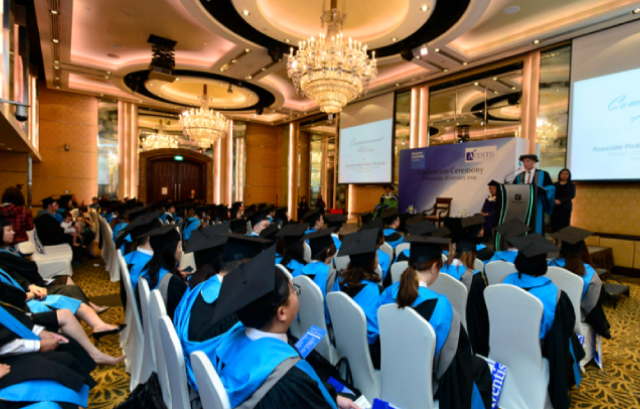As global concerns for climate change and environmental sustainability grow, there has been an increasing demand for green jobs worldwide. Singapore, as a small island nation with limited natural resources, has recognized the importance of sustainability and has been actively promoting the development of green industries. In this blog, we will explore the demand for green job opportunities in Singapore and how the government is responding to this growing trend.
What are Green Jobs?
Green jobs are those that contribute to preserving or restoring the environment, as well as reducing negative impacts on it. These jobs are found in a wide range of sectors, including renewable energy, green building, waste management, sustainable agriculture, and more. They involve working to reduce carbon emissions, conserve natural resources, and protect biodiversity, among other things.
Demand for Green Jobs in Singapore
Singapore has been positioning itself as a leading sustainable city in Asia. The government has set ambitious targets to reduce carbon emissions and increase the use of renewable energy, and has been actively promoting the development of green industries. As a result, the demand for green jobs in Singapore has been steadily increasing.
According to a report by the Singapore Economic Development Board (EDB), the demand for green jobs is expected to grow significantly in the coming years. The report estimates that the green economy in Singapore will create up to 28,000 new jobs by 2030. These jobs will be found in a range of sectors, including renewable energy, energy efficiency, sustainable transportation, and waste management.
In Demand Skills for Green Careers and Jobs
The skills necessary to achieve success in the environmental sector can actually be categorised into two: technical skills and soft skills. Technical skills refer to those skills that are more specific to the industry you are working in, while soft skills are the more general abilities that are nonetheless necessary to help ensure efficiency in both team and individual work. Read on to learn the different technical and soft skills that you must possess if you want to have a successful environmental career.
1. Upskills Your Knowledge

Industry knowledge is considered by many employers as the most significant technical skill that every environmental employee must have. This is true regardless of whether you are looking to get your first job in the environmental industry or have already worked in it for quite some time. Environmental work usually covers numerous industries, and as such, being updated on the changes that occur in those industries is essential.
2. Research and Development
Research and developmental abilities are very useful in a lot of environmental jobs. For most employers, these skills are specifically necessary for employees in mid- to senior-level environmental roles. With the fast advancements in technology, having the ability to show your skills in research and development will help you attain success. Moreover, building some research and development skills will open plenty of career possibilities for you.
3. Policy and Legislation

Constant learning and development when it comes to policy and legislation for the environmental sector are crucial for success and career progression. In many environmental careers, keeping up-to-date with industry and policy changes is an absolute must. Among the best ways to do this is to read plenty of research and watch webinars on different areas of the environmental industry.
Soft Skills Necessary in Green Jobs
1. Project Management
In the environmental sector, project management abilities are required across all experience levels. This involves both technical and soft skills. As an environmental worker, you will need to demonstrate your ability to manage resources and people and combine this with technical skills so as to satisfy the objectives and requirements of a project.
2. Communication and Collaboration
Communication is a vital skill for all experience levels in the environmental job industry and is an ability that you will continuously improve on as your career progresses. Basically, having solid communication skills makes collaboration with others a lot smoother, and this is something looked for by many employers. Communication skills usually involve the ability to present professionally and clearly to clients, explain technical data or information in a more accessible and easier format, and contribute to team discussion.
3. Sustainability Report Writing
Sustainability reporting has become increasingly important for businesses as stakeholders and investors demand greater transparency and accountability regarding a company’s environmental, social, and governance (ESG) performance. Learning how to draft a sustainability report is crucial for businesses that want to demonstrate their commitment to sustainability and show how they are managing their impact on the environment and society. In this article, we will discuss the importance of learning how to draft a sustainability report.
Conclusion
As Singapore continues to position itself as a leading sustainable city in Asia, the demand for green jobs is expected to continue to grow. The government’s efforts to promote the development of green industries and support the creation of green jobs are helping to drive this growth. For workers looking for meaningful and rewarding careers that contribute to environmental sustainability, the green economy in Singapore presents a promising opportunity.

Being aware of the skills considered essential for environmental jobs is a sure-fire way to get into and progress in the environmental sector. Success in this industry basically demands a combination of technical skills and soft skills. By continuously learning and developing these skills, you can certainly excel throughout your environmental career. The best way to show employers that you possess the necessary skills for a green job is to obtain a Graduate Diploma in Business Sustainability and Environmental, Social, and Governance from Aventis.

This graduate diploma programme will help you understand the way environment, social, and governance (ESG) impacts companies as well as the political instruments, legal framework, global agreements, and role of business in creating a zero-carbon economy. More importantly, it will provide you with plenty of career opportunities in the ESG sector, such as being a sustainability manager, project manager, research contractor, recruitment consultant, business analyst, and more.
Aside from this, Aventis also offers a wide variety of other comprehensive and excellent diploma programmes and master degree courses in Singapore, and an MBA degree for working professionals.
To learn more details about our programmes and master’s degrees, do not hesitate to visit our website or contact us today.